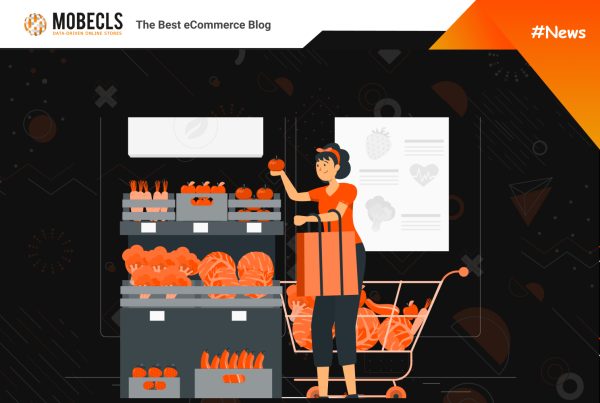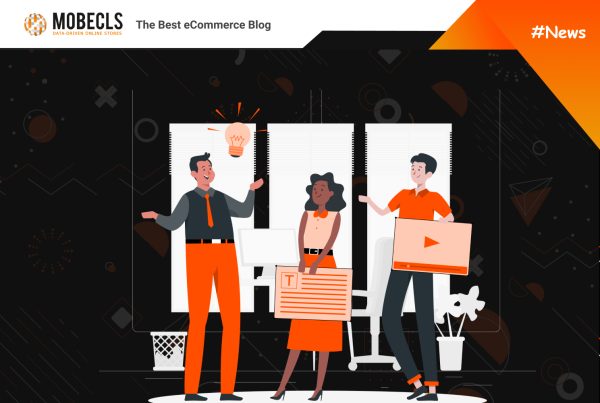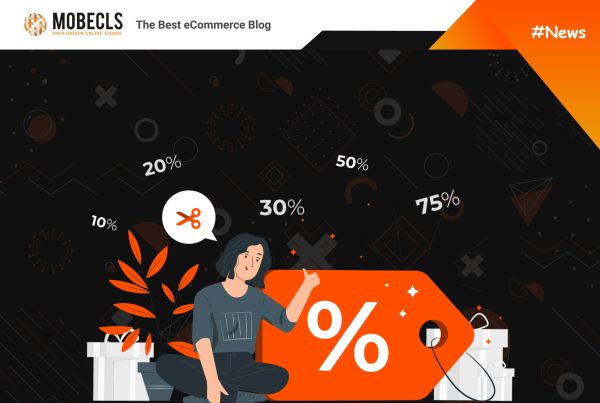2020 has dramatically changed the industry and shopping habits due to COVID-19. Mature offline retailers rushed online, and new entrepreneurs jumped right into businesses through eCommerce. There is no doubt that the industry made a gigantic leap forward and continues to evolve. Today, we’re going to look at eCommerce trends 2021 that will be at the forefront of online businesses.
eCommerce Trends 2021
New Payment Options
Payment options play a crucial role in the checkout process. Customers like options and when they can’t use their favorite payment method, there’s a big chance that they will cancel the purchase at the last minute and opt for your competitor. It’s safe to say that payment options are the main reason why customers choose a specific online store. If you want your online business to be more competitive, you should make the checkout process fast, simple, and flexible in terms of payment opportunities.
Keep an eye out for new payment options like Klarna or cryptocurrencies. Klarna, a Swedish bank, has introduced a buy now – pay later feature. Klarna already partners with top brands like Zara, Nike, etc., and offers its customers three options to make online purchases:
- Buy now and pay 30 days later;
- Spread the cost across three payments within the month since purchase;
- Buy now and spread the cost for up to four years.
Recently, our company has integrated Klarna into several online stores. The results show that customers are prone to use Klarna a bit more than traditional payment options.
Need to Implement Klarna into Your Online Store?
The next payment option that can become a boom this year is cryptocurrency. As of 6 January 2021, one bitcoin equals $34,574. Bitcoin has many benefits for online merchants as low transaction fees and no reverse transaction. In 2021, we might see eCommerce websites accepting cryptocurrencies for transactions. For example, Overstock has already partnered with a Bitcoin platform Coinbase to provide customers with the opportunity to use Bitcoin for purchases.
Green Commerce
Green consumerism has become a real trend in recent years as more and more people want to buy products from brands that advocate sustainability. Customers are looking for products produced in an eco-friendly way and involve recycling.
Numerous brands have already started to implement sustainable practices in their business processes. For example, Amazon claimed that the company would bring its carbon emissions to zero by 2040.
Here are some examples of how you can attract eco customers to your online store:
- Refuse to send paper slips and replace them with emails;
- Use eco-friendly packagings like recycled wrapping sheets or cloths;
- Switch off equipment when you don’t use it;
- Add to your stock new sustainable products or find eco-friendly alternatives to your products;
- Use your social media to tell customers what you do to contribute to the planet.
Omnichannel Shopping
Omnichannel retailing is old but gold. Moreover, with the increase in mobile and voice shopping, the number of omnichannel customers will skyrocket this year. Online shoppers tend to make purchases from multiple channels that include marketplaces, social media, branded stores, brick and mortar stores, Google Shopping, etc. This year, your goal as a merchant is to create and maintain a presence across several channels and platforms to provide customers with a seamless shopping experience.
eCommerce giants have been using omnichannel retailing for ages. Now it’s time for smaller businesses and independent merchants to take advantage of it, considering the new opportunities that appear every year. For example, last year, Instagram introduced Instagram Checkout to let users buy products without leaving the app. Also, WhatsApp did the same and provided its users to make purchases via the app. These are just a few examples as online merchants have more opportunities to expand their market presence.
Important omnichannel statistics over the past years:
- 46.7% of all online searches start with marketplaces such as Etsy, Amazon, and eBay.
- 51% of units sold on Amazon came from third-party sellers.
- 37% – Amazon’s share of online spending.
- 37% of users use social media to research products and brands.
Need Help to Integrate Amazon?
Progressive Web Applications & Mobile Shopping
By the end of the year, mobile devices will make almost 73% of total eCommerce sales. If you don’t want your customers to leave your website and opt for a competitor because it’s not mobile-friendly, you should provide them with a seamless mobile shopping experience. PWA is a technology that will become the future of online shopping as it turns clunky mobile websites into apps. Progressive web applications load faster than a website and allow customers to view pages that they have previously browsed without the internet.
Also, you can follow these tips to optimize your online store for mobile devices:
- Use Google-Mobile-Friendly Test to find out whether your mobile website is responsive;
- Implement accelerated mobile pages (AMP);
- Simplify the checkout process for mobile users;
- Test your mobile website manually to find out if it’s easy to use. If you find any UX issues, consider redesigning your mobile website.
Artificial Intelligence
The experts claim that online merchants will spend more than $7.3 billion on AI solutions by 2022. Today some merchants are already using artificial intelligence to offer customers personalized guidance and recommendations. AI uses past purchase history and on-site behavior to recommend products they are more likely to buy.
Artificial intelligence can significantly improve on-site search, which can increase the conversion rate by 40% in the case of its optimization. The statistics say that only 15% of online businesses allocate resources for on-site search optimization. According to Econsultancy, 30% of online shoppers use the internal site search and convert 5-6 times more than an average visitor who doesn’t use it.
Top AI-powered Search Solution
If you’re looking for a solid AI-powered eCommerce Search solution, Mobecls recommends giving a shot to Unbxd.
Unbxd is an AI-powered eCommerce Search solution that connects shoppers with the products that they come looking for and are most likely to buy. It studies 200+ unique data signals, clickstream data (500M+ events approx.) every day, and applies advanced data sciences to create a contextual, relevant, and personalized shopping experience for shoppers.
It engages the shoppers across the search, browse (category pages), and recommendations purchase journey. Unbxd optimizes the catalog data and feeds indexing using its Product Information Management solution. Unbxd thus enables an end-to-end product discovery journey.
Unbxd combines AI-based automation, powerful merchandising controls, and extensive personalization capabilities to enhance the on-site shopper experience and guarantees conversion lift for online retailers. All of this can be set up using AI in just 5minutes.
Unbxd is trusted by over 1,300 eCommerce websites across 40+ countries including Express, Ashley HomeStore, Pepperfry, HSN, Monoprice, FabIndia, BajajFinserv, Mitre10, WorldofBooks, FoodServiceDirect.com (Unilver), Jerome’s, etc. to power over 15 Billion interactions a month.




